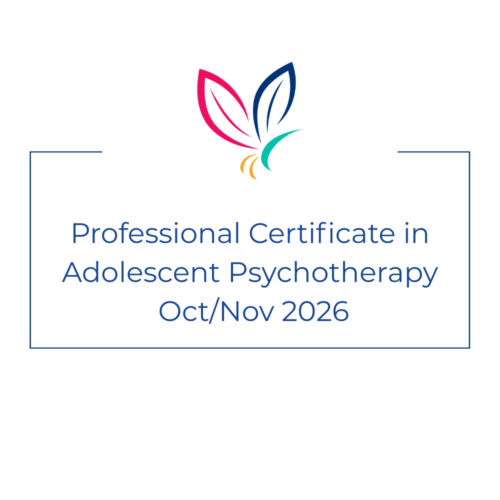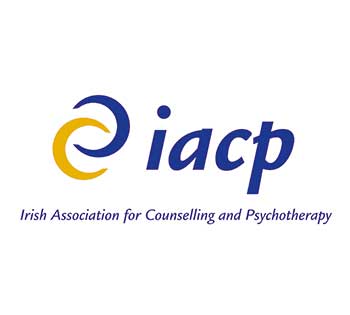Description
COURSE CONTENT
Historical & Philosophical Underpinnings of CBT: Learn about the history of CBT & discover the philosophical underpinnings of CBT, examining the influence of stoicism, rational emotive behaviour, and other philosophical schools of thought that emphasise rational thinking and the role of cognitive processes in emotional regulation.
Core Principles of CBT: foundational principles of CBT, including the cognitive model, the role of behavioural techniques, and the emphasis on collaborative empiricism and skill development in therapy.
Understanding and Developing a CBT Model: Learn how to conceptualise cases through the CBT lens, developing clear models for understanding clients’ problems, and designing targeted therapeutic interventions and share conceptualisations with your clients.
Introducing the Treatment Model to Clients: Master the skills needed to effectively communicate the CBT model to clients, ensuring they understand the rationale behind the techniques and the expectations of their active participation.
Assessment and CBT: Cover the strategies and tools for assessing clients’ difficulties, including the use of structured interviews, questionnaires, and the importance of ongoing assessment throughout the therapy process.
Case Formulation in CBT: Learn the art of case formulation, a crucial skill in CBT that involves integrating assessment information to create a coherent framework for understanding a client’s issues and guiding treatment.
Session Structure in CBT: Review the typical structure of a CBT session, including agenda setting, reviewing homework, addressing current problems, and setting new homework, to create a focused and effective therapeutic encounter.
The Therapeutic Process & Alliance in CBT: Examine the key elements of the therapeutic process in CBT, including building a strong alliance, working with resistance, and repairing ruptures to facilitate client progress.
Understanding and Working with Core CBT Skills: Gain proficiency in core CBT skills such as collaborative practice, guided discovery, Socratic questioning, cognitive restructuring, behavioural activation, behavioural experiments and relapse prevention, and understand how to apply them in therapy.
The Importance of Homework in CBT: Discuss the critical role of homework in CBT, how to effectively set and review it, and strategies for increasing adherence to ensure that learning and progress extend beyond the therapy sessions.
Introduction to CBT for Depression: Investigate CBT’s approach to treating depression, focusing on identifying and modifying maladaptive thought patterns and behaviours.
Introduction to CBT for Anxiety Disorders: Explore CBT interventions for a range of anxiety disorders, emphasising exposure-based techniques and cognitive restructuring.
Behavioural Techniques: Learn about behavioural strategies in CBT, including the use of behavioural activation to combat inertia and behavioural experiments to test and modify beliefs.
Cognitive Techniques: Examine techniques to identify and challenge negative automatic thoughts, underlying assumptions, and core beliefs, and learn how these cognitive processes contribute to clients’ difficulties.
Evaluating Outcomes in CBT: Understand the methods for measuring therapy outcomes, the importance of empirical evaluation, and the use of these evaluations to inform practice and ensure the efficacy of interventions.
Integrating Mindfulness: Learn to blend mindfulness techniques with cognitive-behavioural strategies, enhancing clients’ ability to observe their thoughts and feelings without judgement and improve their emotional well-being.
How to Integrate CBT into Your Current Theoretical Framework: This topic addresses the strategies for seamlessly incorporating CBT methods into your existing practice, whether it’s psychodynamic, humanistic, existential, or another orientation. It focuses on identifying synergies between CBT and other therapeutic approaches, respecting the unique aspects of each client’s needs and your own style as a therapist, while ensuring that the integration enriches the therapeutic process rather than diluting it. This involves understanding the points of convergence and divergence, and developing a cohesive approach that allows for the flexibility and adaptability necessary in a pluralistic therapeutic environment.
Learning Outcomes
By the end of the course, you will be able to:
- Understand the historical and philosophical foundations of CBT, including its links to Stoicism and Rational Emotive Behaviour Therapy.
- Understand and apply the core principles of CBT, including the cognitive model, behavioural techniques, and collaborative empiricism.
- Conduct effective assessments using structured interviews, standardised questionnaires, and ongoing measures to inform treatment.
- Formulate cases through a CBT framework, integrating information into a clear model that guides intervention.
- Communicate CBT models to clients in a way that promotes collaboration, engagement, and shared understanding.
- Identify and work with unhelpful thinking styles, maladaptive assumptions, and core beliefs that contribute to psychological distress.
- Build and maintain a strong therapeutic alliance, managing resistance and repairing ruptures when necessary.
- Use core CBT skills confidently, such as guided discovery, Socratic questioning, cognitive restructuring, behavioural experiments, exposure techniques, and behavioural activation.
- Incorporate meaningful between-session tasks (homework) to reinforce learning and promote progress.
- Apply CBT interventions to a variety of presentations.
- Integrate mindfulness-based strategies within CBT to enhance clients’ ability to observe and regulate thoughts and emotions.
- Evaluate therapeutic outcomes by measuring progress and adapting interventions based on evidence and feedback.
Dates & Cost
IACP approved for 30 CPD hours
Dates: 2025
Fri 19 Sep 2025 9.30am – 4.30pm
Fri 26 Sep 2025 9.30am – 4.30pm
Fri 03 Oct 2025 9.30am – 4.30pm
Fri 10 Oct 2025 9.30am – 4.30pm
Fri 24 Oct 2025 9.30am – 4.30pm
Cost: € 680
Cancellation & Transfer Policy
I understand that circumstances can change, and I aim to be as fair and transparent as possible.
- Up to 14 days before the course start date: Paid fees will be refunded in full, less a €50 administration fee. Alternatively, if the course is running again, you may transfer your booking to a later date at no extra cost.
- Less than 14 days before the course start date: A cancellation fee of 50% of the course fee will apply. Alternatively, if the course is running again, you may transfer your booking to a later date, subject to availability.
- Less than 48 hours before the course start date / non-attendance: Unfortunately, no refund can be issued. Alternatively, if the course is running again, you may transfer your booking to a later date, subject to availability.
All cancellations or transfer requests must be made in writing by email.
If a course is cancelled by the organiser, participants will receive a full refund of fees paid or may choose to transfer to another date where available.
FAQ
How is the course delivered?
The training is delivered live online via Zoom, with interactive presentations, discussions, role-plays, case work, and practical exercises.
Are the sessions recorded?
No, the course will not be recorded. The sessions are highly interactive and often involve participants sharing experiences from their own work or from their private lives. To maintain confidentiality and create a safe and open space for discussion, we keep the training live only.
Can I record the sessions for my own use?
No, participants are not permitted to record the sessions. This is to respect the confidentiality of all participants and to encourage everyone to contribute freely.
What happens if I miss a session?
Detailed lecture notes , readings and other materials are provided. If anything feels unclear, you are welcome to check in with me directly.
Do I need to prepare anything before the course starts?
No preparation is required. Some participants find it helpful to reflect on examples from their own work with adolescents, but this is optional.
What is the time commitment?
The course runs over four full training days, with additional time between sessions to review materials and practise skills.
What materials are provided?
You will receive comprehensive lecture notes, handouts, worksheets, and tools that you can use straight away in practice.
Will I receive CPD hours and a certificate?
Yes. Successful completion awards the Professional Certificate Cognitive Behaviour Therapy, approved for 35 CPD hours.
Is there an assessment?
There is no formal written assessment. Certification is based on full participation in the live training.
Do I have to do a placement? No, there is no placement required as part of this course.
What if I have questions during the course?
You’re encouraged to ask questions at any point during the live sessions, and you can also follow up with Susi afterwards if you need clarification on anything.
Your trainer
Susi Lodola is an experienced psychotherapist and clinical supervisor, known for her engaging and practical approach to training and development. In her private practice, she helps clients build emotional resilience and navigate mental health challenges through evidence-based therapeutic approaches. As a clinical supervisor, Susi supports fellow therapists in deepening their skills and confidence, fostering professional growth and enhancing therapeutic outcomes.
Alongside her clinical work, Susi is an experienced third level lecturer, and her teaching blends academic theory with real-world insights, ensuring students gain not just knowledge but the confidence to apply it effectively in practice.
Susi’s ability to simplify complex concepts and create a supportive learning environment consistently receives positive feedback from students, many of whom credit her for advancing their professional development.
Beyond academia, Susi delivers corporate workshops on mental health and wellbeing, equipping organisations with tools to foster healthier, more resilient workplaces. She has also provided specialist training for mental health practitioners, including those working within NEPS (National Educational Psychological Service).
A strong advocate for continuous learning, Susi deepened her expertise by attending a specialised CBT workshop at the Beck Institute in Philadelphia, focusing on CBT.
Qualifications:
- MSc CBT & Motivational Interviewing
- BA (hons) Psychology
- BA (hons) Linguistics
- BA Psychotherapy
- Prof. Cert. Child & Adolescent Therapy
- Prof. Cert. Mindfulness
- Suicide Intervention Training
- Diploma in Clinical Supervision






